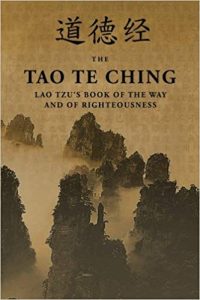

The Master is a human embodiment of the Tao. Lao Tzu emphasizes that the Master behaves like the Tao itself. The more you talk if it, the less you understand. The more you use it, the more it produces We might then be able to release the burdens that come with naming some things "beautiful" and others "ugly." Yet, Lao Tzu suggests that we might be able to transcend these dichotomies if we understand each opposite as part of a larger whole. We cannot understand what high is without the concept of low.

We cannot understand or experience easy without having experienced difficult. Being and non-being, difficult and easy these categories define each other. Categories that we believe to be opposite are actually intimately connected, since their existence depends on each other. In the second half of the stanza, Lao Tzu develops this theme further.

The first half of the stanza admonishes the reader against categorizing some things as "beautiful" and "good." He points out that naming some things as beautiful marks other things as ugly. In this early stanza, Lao Tzu introduces primary themes of yin and yang, the power of perception, and the importance of remaining centered. "When people see some things as beautiful,īefore and after follow each other." Lao Tzu, Verse 2 We are thankful for their contributions and encourage you to make your own. These notes were contributed by members of the GradeSaver community.


 0 kommentar(er)
0 kommentar(er)
